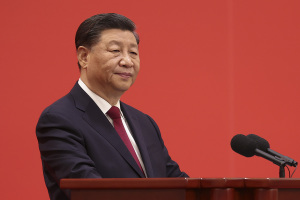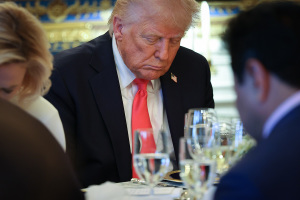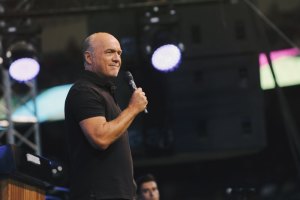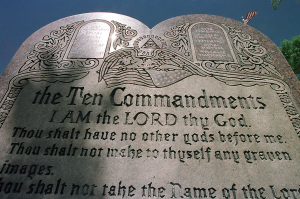Do We Need to Protect Religious Freedom in the Pulpit?
On October 7, pastors across the nation addressed issues during their Sunday sermons that should cause the IRS to come after them for "political speech." And that was precisely their intention. Close to 1600 pastors and priests-about three times the number as last year-signed up to give messages that would address the positions of political candidates on key issues of concern to biblically minded Christians.
But this exercise in free speech violated an Internal Revenue Service rule referred to as the Johnson Amendment. And that was the goal of Pulpit Freedom Sunday. By speaking directly to specific candidates' positions, these pastors were hoping to generate a court case that will challenge the constitutionality of the rule. Any pastors get investigated by the IRS for their challenge its rule will be represented free of charge by the Alliance Defending Freedom (ADF).
Ken Klukowski, director of the Center for Religious Liberty at the Family Research Council wrote, (Breitbart.com, 10/8/2012), "This is a fascinating form of civil disobedience. Although churches are quick to obey the biblical command in Romans 13:1 (among many other verses) to submit to authority, these pastors also understand that in this country the Constitution is the Supreme Law of the Land, and that any federal statute violating the Constitution is not the law and lacks any authority."
Pulpit Freedom Sunday was launched by ADF in 2008 in an effort to see the Johnson Amendment declared unconstitutional. That year 33 pastors challenged the rule. In 2009, 84 pastors did. In 2010 there were a hundred, and last year 539 pastors sent their sermons to the IRS.
So far, the IRS has not touched any of these challenges. The excuse seems to be "lack of manpower." As the liberal Huffington Post declared (10/5/2012): "…despite what's in the rules, the agency continues to struggle to do anything about those who defy the law. In 2009, the U.S. District Court of Minnesota ruled the IRS no longer had the appropriate staff to investigate places of worship after a reorganization changed who in the agency had the authority to launch investigations. New procedures for conducting church audits have been pending since 2009, which has left the IRS virtually impotent in conducting any kind of new investigations."
The rule in question was passed by Congress in 1954 as part of an effort by then Sen. Lyndon B. Johnson to muzzle non-profit organizations that were opposing his re-election. His primary concern was silencing his conservative opponents, not pastors in pulpits.
James D. Davidson wrote in a 1998 scholarly paper that high on Johnson hit-list were two non-profit foundations. One of them, the Committee for Constitutional Government (CCG) had been circulating an article which stated, "A vote for Johnson-many Texans feel-will be a vote for more centralization of power and socialism in Washington; for more of the internationalism which is designed to abolish the U.S.A; and for more covering up of Communist infiltrators." The CCG, as history shows, was correct in its assessment.
Even though the IRS has been ignoring infractions of the Johnson Amendment, this has not stopped one organization from using it to try to keep pastors silent at election time.
In September, the Americans United for Separation of Church and State (AU) sent out a letter to over 60,000 clergy who represent "a wide range of Christian denominations as well as synagogues and mosques." The AU's purpose was "to remind them that federal law prohibits tax-exempt entities, such as houses of worship, from endorsing candidates for public office."
AU executive director, Rev. Barry W. Lynn, who is an ordained minister in the United Church of Christ and a prominent leader of the American religious left, said, "People don't join churches because they want to be told how to vote. Our letter reminds religious leaders about what the law requires, why it makes sense and how it could affect them."
But Erik Stanley, Senior ADF Legal Counsel, says "the AU is using an unconstitutional law to try and intimidate and scare churches." The problem, says Stanley, is that the Johnson Amendment "is blatantly unconstitutional." As he wrote at Townhall.com (10/8/2012) those who argue that this is a "taxation issue" are missing the point that this is in truth a free speech issue.
"Pastors have been applying scriptural teaching to circumstances facing their congregations for centuries," writes Stanley. "This is not 'political' speech. Rather, it's core religious expression from a spiritual leader to his congregants. That kind of expression is at the very center of the freedom of speech and religion protections in the First Amendment."
According to Stanley, "The real question is this: When has the government ever been allowed to condition any government-recognized status (such as tax-exempt status) on the surrender of a constitutionally protected freedom?"
Every pastor-both those who participated in Pulpit Freedom Sunday and those who didn't-should be able to give an answer this question and defend it.




























